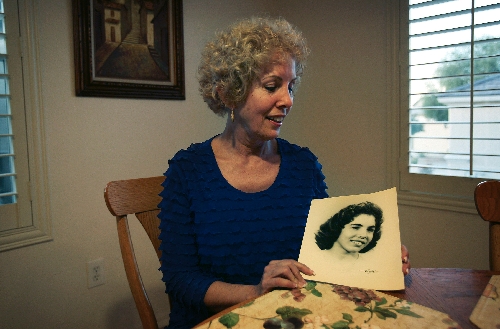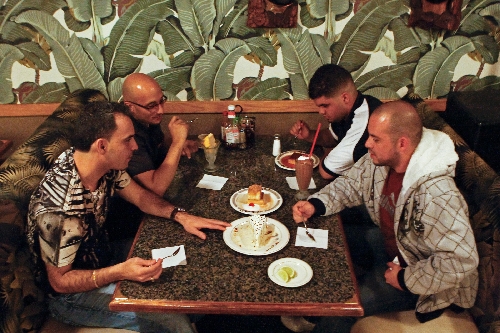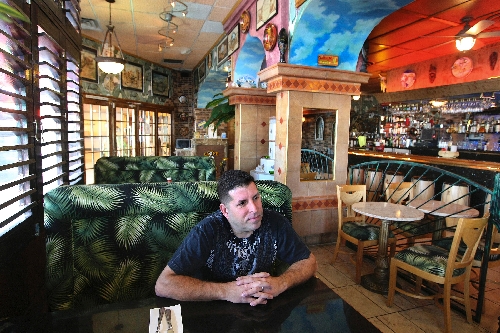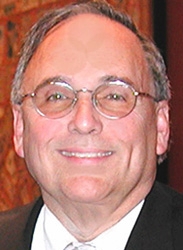Local Cuban-Americans recall links to island nation




Fidel Castro overthrew the Cuban government in 1959, snuffing out a vibrant part of the island’s economy and laying the foundation for what would become the Cuban American community of Las Vegas.
“When Castro shut down the casinos in Cuba, it released entertainers, waiters, maitre d’s, busboys and other hotel workers on the economy,” says William Clayson, historian and professor at the College of Southern Nevada. “Las Vegas just so happened to have jobs for them.”
Clayson has researched and written about the Las Vegas Cuban community, most recently for the book “The Peoples of Las Vegas: One City, Many Faces.”
Although Mexican immigrants have long made up the largest segment of the local Latin community, Cubans had a fairly substantial presence in Las Vegas during the ’60s and ’70s, Clayson says. In recent years, as Cubans were integrated into the overall community, that presence has faded.
The handful of Cuban restaurants that dot the valley have become de facto gathering spots for immigrants who long for a taste of home and for first and second generation Cuban Americans who hunger for a deeper understanding of their family’s roots, says Sergio Perez, owner of the Florida Cafe and Havana Grill restaurants.
But the community itself lacks a central unifier that other local Latin cultures boast. There are no Cuban festivals or celebrations, and the once-popular Cuban Circle, a club where immigrants gathered to network, dance, eat and celebrate, no longer exists.
Still, Cubans remain well-represented and active in local politics and business, Clayson says. We talked to local Cuban-Americans about Cuba, its future and the future of their local community.
And even though there are timely reasons for them to reflect — the 50th anniversary of the failed Bay of Pigs invasion is in April, and the United States government recently changed Cuban travel policies — Cuba, Castro and freedom are rarely far from their thoughts.
Otto Merida
President of the Latin Chamber of Commerce
Born in Havana, Merida came to the United States in August 1961, only four months after the failed Bay of Pigs invasion. He was 15. The program that got him out of Cuba — Operation Peter Pan — was organized by the local Catholic church and the U.S. government. From 1960 to 1962, more than 14,000 Cuban children ages 5 to 18 were sent to Miami by their parents.
“I remember my mother saying, ‘I want you to remember this address in case no one is waiting for you in Miami,’ ” Merida recalls. “That’s why, 50 years later, I’ve never forgotten my address or my phone number in Cuba.”
When he moved to Las Vegas in 1974, a club called the Cuban Circle was a prominent hot spot for local Cubans. People went there if they were homesick and needed to connect with a fellow countryman. They also went there for job referrals, to dance, to hang out.
That club no longer exists, but it became a cornerstone of the Latin Chamber of Commerce, Merida says.
For 50 years, Merida, 65, didn’t visit Cuba, even though the pull of his birthplace was hard to resist. But he felt like he should stay away since Castro remained in power. Many in his generation feel that way still, he says.
“The Bay of Pigs was a betrayal of this country to Cuba,” Merida says. “That’s why so many Cubans became conservatives and Republicans. They felt as though the Democrats had betrayed them.”
It was a yearning to visit his homeland and the encouragement of friend Peter Guzman that changed Merida’s mind. In 2009, he visited Cuba to explore potential business opportunities that might benefit Nevada businesses.
“As a representative of the chamber, my interest is to find out if there are people in Las Vegas who have things to export to Cuba,” Merida says. “To bring additional revenues to Nevada. I used to be for the embargo, but it doesn’t work.”
Peter Guzman
Real estate broker for Coldwell Banker
Guzman’s parents left Cuba when he was 2, moving to Las Vegas for work. His father was among the workers who lost their jobs after Castro closed the casinos that had become such an important part of the Cuban economy.
Guzman grew up hearing the stories of how Castro took everything from his parents’ generation. Their loss is still tangible and is the reason why “there is tremendous respect between the second and third generations,” Guzman says. “But my love of Cuba is stronger than my hatred of Fidel.”
Guzman visited Cuba with his friend, Otto Merida, in 2009. The country, he says, holds tremendous promise.
“If you ask the older generation, they will tell you that the younger generation is more Cuban than they are,” says Guzman, 40. “My generation of Cubans have a fascination with where our parents came from. We want to see the aunts and uncles and cousins who stayed. I believe my generation is a little frustrated. We’re still respectful of our parents, but we’ve had 50 years of the embargo. Let’s try something different.”
When Guzman was growing up in Las Vegas, the Cuban community was much more unified than it is now. He remembers visiting the Cuban Circle, meeting people, learning about the Cuban culture. He even met his wife there. He would like to see Cubans regain a strong presence within the overall community.
“I think it is missing a cohesion. I’m not sure if it would work like it did in the past, though,” Guzman says.
Maria Roa
Professor at the College of Southern Nevada
In Cuba, Roa lived close to the Bay of Pigs. She was only 13 when it happened, yet, 50 years later, she remembers it “as if it were yesterday,” she says.
“I remember all of the troops going into the peninsula, and I remember the trucks full of dead people, the soldiers that came back with cloth on their rifles,” Roa says. “They used to tear off a little piece of the clothing of the people they had killed and tie them to their rifles.”
She came to the United States in 1969 on a “Freedom Flight” with her parents and sister and nothing more than the clothes on her back.
The Freedom Flights were an arrangement between the Cuban and U.S. governments after Castro had promised that anyone could leave Cuba. They started in 1965 and ended in 1972, during which time tens of thousands of Cubans came to the United States.
In 1977, Roa moved from Miami to Nevada, where she worked as a casino dealer. During a slow shift, she noticed an elderly woman dealing at a nearby table.
“I said, ‘That’s not going to be me,’ ” she says.
She went to college, eventually earning a Ph.D. in applied linguistics. She has been teaching at the College of Southern Nevada since 1997.
“I worked, went to school and took opportunities that came my way,” says Roa, 62. “And now I teach. Teaching is what I really, really love.”
In one of her classes, she teaches students about Cuba and the revolution that brought Castro into power. Not many students know the history, she says.
The local Cuban community has never been that large, she says. The 2000 Census found about 11,000 Cubans living in Nevada. Still, she has a core group of Cuban friends and finds that opinions about the relationship between the United States and Cuba are just as strong today as they were 50 years ago.
“A lot of people put a lot of blame on the U.S. for the embargo,” Roa says. “But the U.S. is free to have relationships with whoever they want. Cuba has relationships with every other country. They can buy, trade, sell. They have a big tourist industry. It is not the United States’ fault that there is an embargo. It’s Cuba’s fault.”
Roa has never gone back, even though she has family she would like to see.
“I’m afraid of being there and having that feeling of wanting to get out and not being able to,” she says. “Intellectually, I know that’s not going to happen. But I can’t bring myself to go.”
Contact reporter Sonya Padgett at spadgett@ reviewjournal.com or 702-380-4564.












